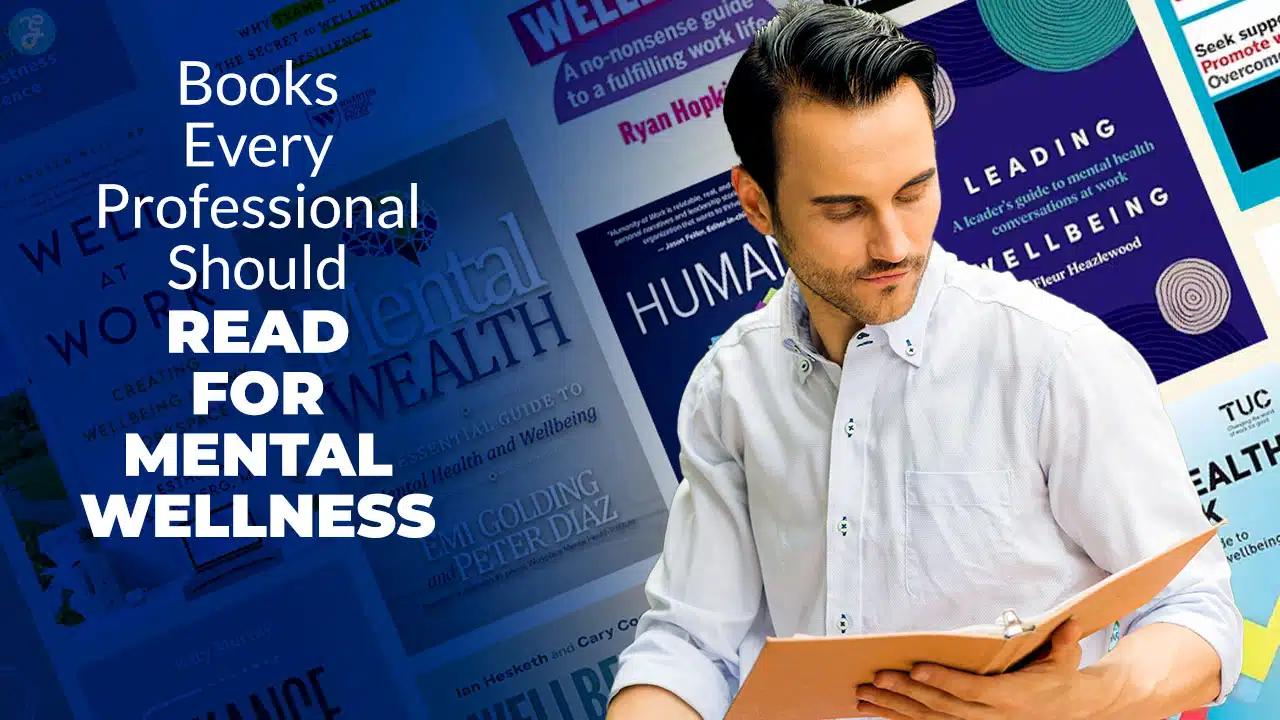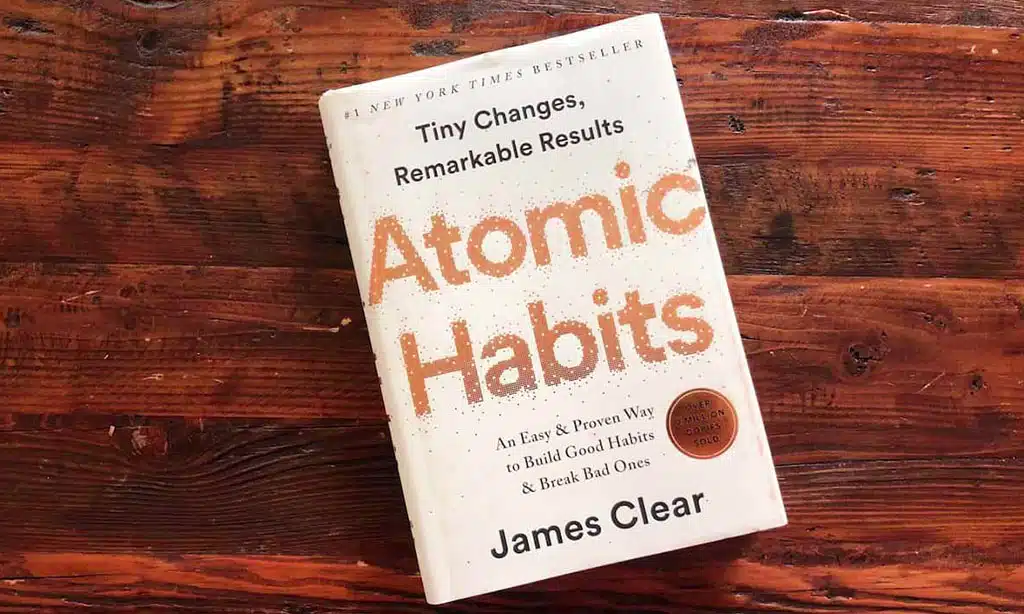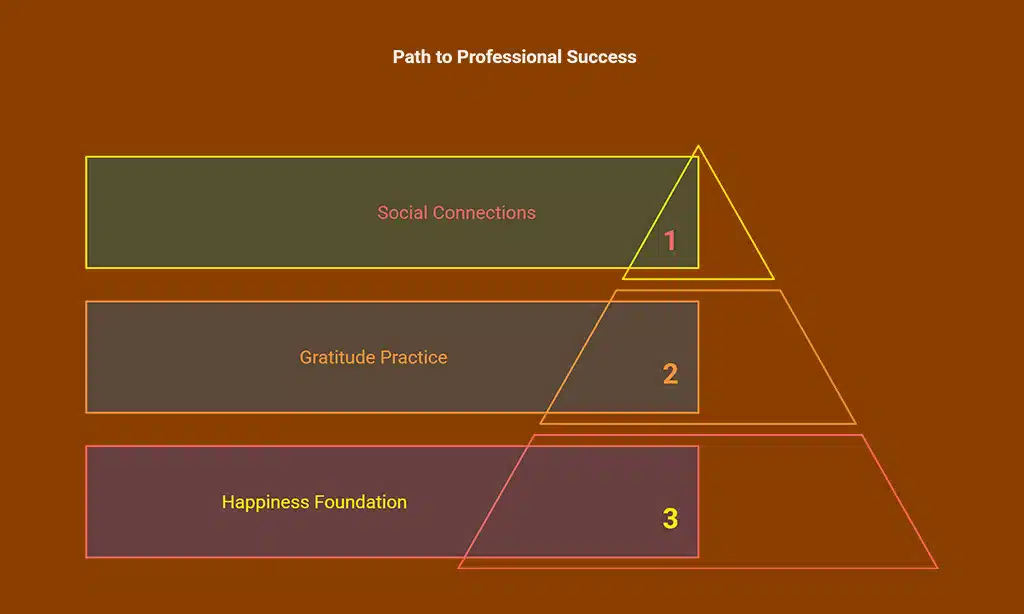In the contemporary professional world, mental wellness is often sidelined in favor of productivity, deadlines, and career advancement. However, a growing body of research emphasizes the link between mental health and professional success.
A healthy mind leads to increased productivity, creativity, and decision-making ability, while poor mental health can lead to burnout, disengagement, and even long-term health issues. This makes mental wellness not just a personal responsibility, but a professional one as well.
Books are powerful tools for self-improvement and mental wellness, providing insights that help individuals manage stress, build emotional intelligence, and stay resilient during challenging times. Whether you’re an entrepreneur, a corporate worker, or a freelancer, these 10 books will equip you with the tools needed to foster better mental wellness and enhance your professional life.
In this article, we’ll explore 10 books every professional should read for mental wellness and how they can positively impact your work and personal life. From mindfulness and habits to emotional intelligence and leadership, these books cover essential mental wellness aspects that can help you thrive in today’s fast-paced world.
Why Mental Wellness Matters in the Workplace
Mental wellness is critical in the workplace for several reasons. A healthy mind directly impacts a professional’s ability to think clearly, make decisions, collaborate with colleagues, and manage stress. In fact, research shows that organizations with a focus on employee mental health enjoy lower turnover rates, reduced absenteeism, and increased productivity.
According to the American Psychological Association [APA], nearly 60% of employees report that workplace stress impacts their mental health, making it crucial for organizations to prioritize wellness programs.
When mental wellness is maintained, professionals are more resilient, adaptable, and engaged in their work. By implementing mental wellness practices such as mindfulness, emotional regulation, and stress management, individuals can not only improve their performance but also prevent burnout and long-term health issues.
10 Essential Books for Mental Wellness
Below are the 10 books every professional should read for mental wellness. These books offer expert insights into various aspects of mental wellness, providing professionals with actionable steps to take charge of their mental health.
Book 1: The Power of Now by Eckhart Tolle
In The Power of Now, Eckhart Tolle introduces the idea of living in the present moment. He explains that many people waste mental energy by dwelling on the past or worrying about the future. Instead, focusing on the “now” can help professionals achieve peace of mind, reduce anxiety, and increase productivity.
Key Takeaways for Professionals:
- Embrace mindfulness: Tolle teaches that mindfulness is a powerful tool for combating stress. By focusing on the present moment, professionals can reduce distractions and increase concentration.
- Let go of the past and future: Constantly dwelling on past failures or worrying about future tasks can drain mental energy. This book teaches professionals to detach from such worries, fostering a clearer mind and enhanced emotional balance.
How It Improves Focus and Productivity: In high-pressure environments, professionals often juggle multiple tasks at once, leading to burnout and poor focus. By practicing mindfulness, as advised in The Power of Now, professionals can improve their ability to focus on the task at hand, reduce distractions, and enhance their productivity.
| Key Principle | How It Helps Professionals |
| Mindfulness | Improves focus and reduces stress |
| Letting go of the past | Reduces anxiety and increases clarity |
| Living in the present moment | Enhances productivity and decision-making |
Book 2: Atomic Habits by James Clear
James Clear’s Atomic Habits focuses on the power of small, consistent actions and how they compound over time to create lasting change. The book explains the science of habit formation, helping professionals understand how to break bad habits and build better ones that improve mental wellness.
Key Takeaways for Professionals:
- Start small: Clear advocates for making small adjustments in your daily routine. These micro-habits may seem insignificant at first, but over time, they add up to profound changes.
- Focus on systems over goals: Instead of focusing on distant goals, Clear suggests focusing on systems [the daily habits] that will help you achieve them. This mindset shift reduces stress and makes progress feel more attainable.
Implementing Small Changes for Big Results: Professionals often set ambitious goals, but these can feel overwhelming and lead to burnout. Clear’s emphasis on small habits makes long-term success feel achievable, allowing professionals to improve their mental wellness by incorporating incremental changes into their daily lives.
| Key Principle | How It Helps Professionals |
| Start small | Reduces overwhelm and builds lasting habits |
| Focus on systems | Makes success feel more attainable and reduces stress |
| Habit stacking | Improves consistency and effectiveness in routine tasks |
Book 3: The Subtle Art of Not Giving a Fck* by Mark Manson
Mark Manson’s The Subtle Art of Not Giving a Fck* offers a refreshing take on personal growth. It teaches professionals to stop worrying about everything and focus only on what truly matters. By letting go of the constant need for perfection, individuals can improve their mental wellness and emotional well-being.
Key Takeaways for Professionals:
- Prioritize what matters: Manson teaches that professionals should choose their “f*cks” wisely. Instead of trying to please everyone or chase unrealistic goals, focus on the things that align with your values.
- Accept imperfection: Striving for perfection often leads to stress, burnout, and frustration. Manson encourages professionals to embrace their flaws and stop worrying about the things they can’t control.
Learning to Prioritize What Matters Most: By prioritizing your values and goals, you can focus your energy on what truly matters, leaving behind unnecessary stressors. This approach helps professionals manage workload, expectations, and relationships in a healthier way.
| Key Principle | How It Helps Professionals |
| Prioritize values | Helps reduce stress and avoid burnout |
| Accept imperfection | Improves resilience and reduces perfectionism |
| Let go of control | Fosters peace of mind and emotional well-being |
Book 4: Mindset: The New Psychology of Success by Carol S. Dweck
Carol Dweck’s Mindset introduces the concept of a “growth mindset”—the belief that abilities and intelligence can be developed through effort and perseverance. This book provides professionals with the tools to foster resilience, overcome challenges, and keep learning throughout their careers.
Key Takeaways for Professionals:
- Embrace challenges: Professionals with a growth mindset see challenges as opportunities to learn, rather than obstacles. This mindset helps reduce stress and builds mental toughness.
- Learn from feedback: Constructive criticism becomes a valuable tool for improvement when viewed with a growth mindset. Professionals can use feedback to grow, rather than taking it personally.
The Role of Resilience in Mental Wellness: Professionals with a growth mindset are more likely to bounce back from setbacks and view failures as opportunities for growth. This resilience is key to maintaining mental wellness in the face of workplace stress.
| Key Principle | How It Helps Professionals |
| Embrace challenges | Builds resilience and adaptability |
| Learn from feedback | Promotes continuous learning and self-improvement |
| See effort as key | Fosters growth and enhances emotional resilience |
Book 5: Dare to Lead by Brené Brown
Brené Brown’s Dare to Lead offers an in-depth exploration of vulnerability, courage, and leadership. Brown explains how embracing vulnerability in leadership can foster better connections with team members, build trust, and create a more emotionally healthy work environment.
Key Takeaways for Professionals:
- Lead with vulnerability: True leadership comes from being authentic and transparent. Professionals who embrace vulnerability foster trust and create a supportive work culture.
- Build resilience: Brown emphasizes the importance of resilience and emotional courage in leadership. Professionals can use these traits to manage stress and bounce back from setbacks.
Strengthening Emotional Intelligence at Work: By understanding and practicing emotional intelligence, professionals can improve their leadership capabilities, work relationships, and overall mental health. Emotionally intelligent professionals are better equipped to handle workplace stress and navigate difficult conversations.
| Key Principle | How It Helps Professionals |
| Lead with vulnerability | Builds trust and emotional connection in teams |
| Build resilience | Improves adaptability and mental toughness |
| Practice emotional courage | Enhances communication and stress management |
Book 6: The Four Agreements by Don Miguel Ruiz
The Four Agreements by Don Miguel Ruiz is based on ancient Toltec wisdom and presents a practical code of conduct that promotes freedom and personal happiness. These four agreements can help professionals navigate their personal and professional lives by minimizing stress, misunderstandings, and emotional turmoil.
Key Takeaways for Professionals:
- Be impeccable with your word: This agreement stresses the importance of using your words with integrity and avoiding self-criticism. Professionals can build trust and reduce stress by communicating clearly and positively.
- Don’t take anything personally: In a professional setting, it’s easy to internalize criticism or negative feedback. Ruiz teaches that other people’s actions are a reflection of them, not of you, allowing professionals to avoid unnecessary emotional distress.
- Don’t make assumptions: Many conflicts in the workplace arise from misunderstandings. This agreement encourages clarity in communication, ensuring that assumptions are eliminated, which reduces workplace anxiety and stress.
- Always do your best: By focusing on doing your best, regardless of outcomes, professionals can minimize feelings of guilt or regret, fostering a healthier work-life balance.
How The Four Agreements Enhance Workplace Relationships: By adhering to these agreements, professionals can improve their relationships with coworkers, reduce interpersonal conflict, and create a more supportive work environment.
| Key Principle | How It Helps Professionals |
| Be impeccable with your word | Promotes integrity and trust |
| Don’t take anything personally | Reduces emotional stress and conflict |
| Don’t make assumptions | Prevents misunderstandings and stress |
| Always do your best | Fosters self-compassion and reduces guilt |
Book 7: The Happiness Advantage by Shawn Achor
In The Happiness Advantage, Shawn Achor presents the idea that happiness fuels success, rather than success leading to happiness. Achor, a leading researcher on positive psychology, offers a compelling argument for why cultivating a positive mindset is essential for both personal well-being and professional success.
Key Takeaways for Professionals:
- Happiness drives success: Research shows that when individuals feel positive, their brains perform better, leading to greater productivity, creativity, and problem-solving skills.
- Practice gratitude: Achor suggests that professionals can improve their mental wellness by regularly practicing gratitude, which leads to increased happiness and better relationships at work.
- Social connections are key: Building positive relationships in the workplace not only improves mental health but also fosters a more collaborative and supportive work environment.
Practical Tips for Building a Positive Work Environment: Achor provides several actionable steps for cultivating a happier, more successful workplace:
- Start each day with a few minutes of gratitude.
- Engage in acts of kindness, such as complimenting a colleague.
- Cultivate strong relationships with coworkers to reduce stress and foster collaboration.
| Key Principle | How It Helps Professionals |
| Happiness fuels success | Boosts productivity and problem-solving abilities |
| Practice gratitude | Enhances mental wellness and job satisfaction |
| Cultivate social connections | Improves teamwork and reduces workplace stress |
Book 8: Grit: The Power of Passion and Perseverance by Angela Duckworth
Angela Duckworth’s Grit emphasizes that passion and perseverance—rather than talent—are the keys to success. Duckworth presents case studies from various fields to show that sustained effort over time is the true driver of achievement.
Key Takeaways for Professionals:
- Perseverance matters: Professionals who persist despite obstacles often find greater success than those who rely on talent alone. This can help build resilience in a professional setting, especially when facing difficult projects or challenges.
- Passion fuels perseverance: Passion for one’s work can serve as the motivation to push through hard times. Finding meaning in your work can prevent burnout and keep you motivated even in stressful circumstances.
- Develop a growth mindset: Like Dweck’s work, Duckworth stresses the importance of a growth mindset—understanding that persistence and effort lead to success, not innate ability.
The Importance of Perseverance in Professional Growth: Professionals who cultivate grit are better equipped to deal with setbacks and work through challenges. By embracing this mindset, individuals can enhance their mental resilience, develop problem-solving skills, and push through difficult periods.
| Key Principle | How It Helps Professionals |
| Perseverance and passion | Fosters long-term success and mental toughness |
| Growth mindset | Encourages resilience and adaptability |
| Work through setbacks | Builds perseverance and problem-solving skills |
Book 9: Emotional Intelligence 2.0 by Travis Bradberry and Jean Greaves
In Emotional Intelligence 2.0, Travis Bradberry and Jean Greaves break down the concept of emotional intelligence [EQ] into easy-to-understand skills. They provide practical strategies for improving EQ, which is a crucial factor for both personal and professional success. With higher EQ, professionals can build stronger relationships, manage stress more effectively, and navigate challenging workplace dynamics.
Key Takeaways for Professionals:
- Self-awareness is key: The first step in improving EQ is recognizing and understanding your own emotions. Professionals who develop this awareness are better able to manage their reactions to stress, frustration, and other emotional triggers.
- Empathy builds relationships: Developing empathy—understanding others’ emotions—is vital for creating strong professional relationships. This skill can enhance teamwork, collaboration, and leadership effectiveness.
- Emotional regulation reduces stress: Professionals with high EQ can manage their emotions more effectively, leading to reduced workplace stress and improved mental wellness.
How Emotional Intelligence Impacts Professional Relationships: Professionals with high emotional intelligence are better equipped to navigate difficult situations, collaborate with diverse teams, and lead with empathy. EQ plays a crucial role in effective communication, conflict resolution, and stress management, all of which contribute to better mental wellness.
| Key Principle | How It Helps Professionals |
| Self-awareness | Helps manage emotions and stress |
| Empathy | Strengthens workplace relationships |
| Emotional regulation | Reduces stress and enhances decision-making |
Book 10: The Art of Happiness by Dalai Lama and Howard Cutler
In The Art of Happiness, the Dalai Lama and psychiatrist Howard Cutler explore the concept of happiness from a Buddhist perspective. This book teaches professionals how to cultivate lasting happiness by developing compassion, mindfulness, and resilience. It presents the Dalai Lama’s insights into finding peace in a chaotic world, offering a practical guide to emotional well-being.
Key Takeaways for Professionals:
- Compassion reduces stress: By practicing compassion toward oneself and others, professionals can create a more peaceful and supportive work environment, reducing stress and improving mental wellness.
- Mindfulness fosters happiness: Mindfulness and meditation practices, which the Dalai Lama emphasizes, help professionals become more present and calm in their daily lives, improving focus and reducing stress.
- Inner peace comes from balance: The book teaches that true happiness arises from inner peace, which is achieved by balancing professional demands with personal well-being and nurturing relationships.
Finding Balance Between Work and Personal Life: The principles shared in The Art of Happiness can help professionals maintain a sense of balance between their work responsibilities and personal life. By practicing mindfulness and compassion, they can foster peace and contentment, reducing stress and improving mental wellness.
| Key Principle | How It Helps Professionals |
| Compassion | Builds emotional resilience and reduces stress |
| Mindfulness | Improves focus and reduces anxiety |
| Inner peace and balance | Fosters work-life harmony and emotional well-being |
Takeaways
By reading 10 books every professional should read for mental wellness, professionals can arm themselves with the tools needed to thrive in today’s demanding work environments. These books offer invaluable insights on stress management, resilience, emotional intelligence, and leadership, all of which are crucial for maintaining mental wellness.
Whether you’re looking to improve focus, reduce stress, or enhance your relationships at work, these books provide the strategies and inspiration needed for long-term personal and professional growth. Start your journey towards better mental wellness today by incorporating the principles from these books into your life.
By doing so, you’ll not only become a better professional but also a healthier and more fulfilled individual.






































